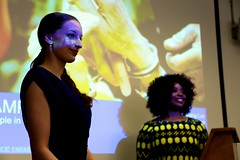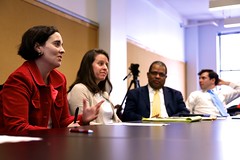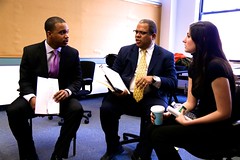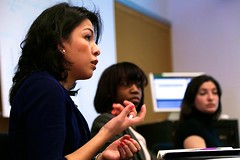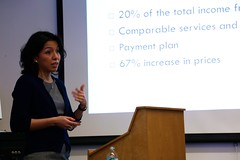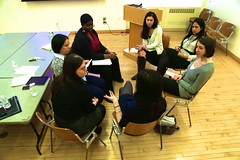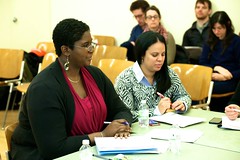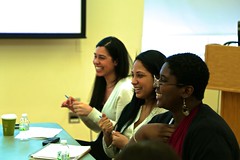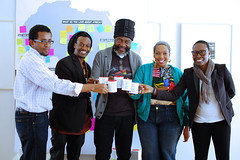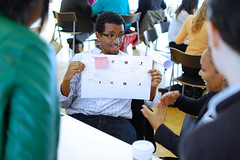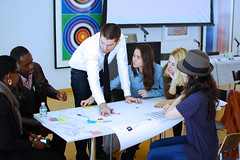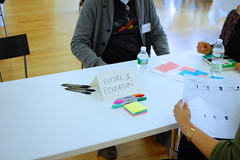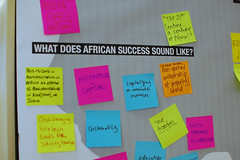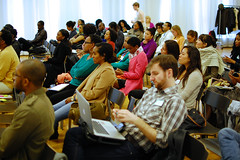Ashlee is the Social Enterprise Project Manager at Sustainable Harvest Rwanda, where she designs and implements social impact programs that improve information exchange among coffee origins and along the coffee supply chain. Programs she designs reinvest premiums earned through coffee processing back to the farmers.
Category Archive: Development Alumni
Alumna Mala Kumar Launches Book: “The Paths of Marriage”
Mala’s first book, The Paths of Marriage, is scheduled to be released on 1 October 2014. The novel is about three generations of women from 1950s India to present-day NYC, and their battles of discrimination from the outside world and from each other.
Alumni Spotlight: Diana Rusu
“As a result of my research and interviews I have concluded that the best way women can bring the change is by taking a more participatory approach. They should involve themselves in professional trainings, they should be educated, come with ideas and develop them (even if this means failing sometimes). [As a result they will] become aware of their rights and gender equality in society [and they will] fight and speak for their liberties, [and they will] become more powerful.” -Diana Rusu
Alumna Emily Miller Continues Latin America Focus Researching at Brookings Institution
“[Central Americans displaced by criminal violence] is an issue that truly needs more research given rising levels of violence paired with a severe lack of data. Bringing these varied perspectives together [at the February round table] had a real added value in beginning to understand where the holes are in our current knowledge, what the people on the ground know, and what the policymakers need to know to be more effective.”









